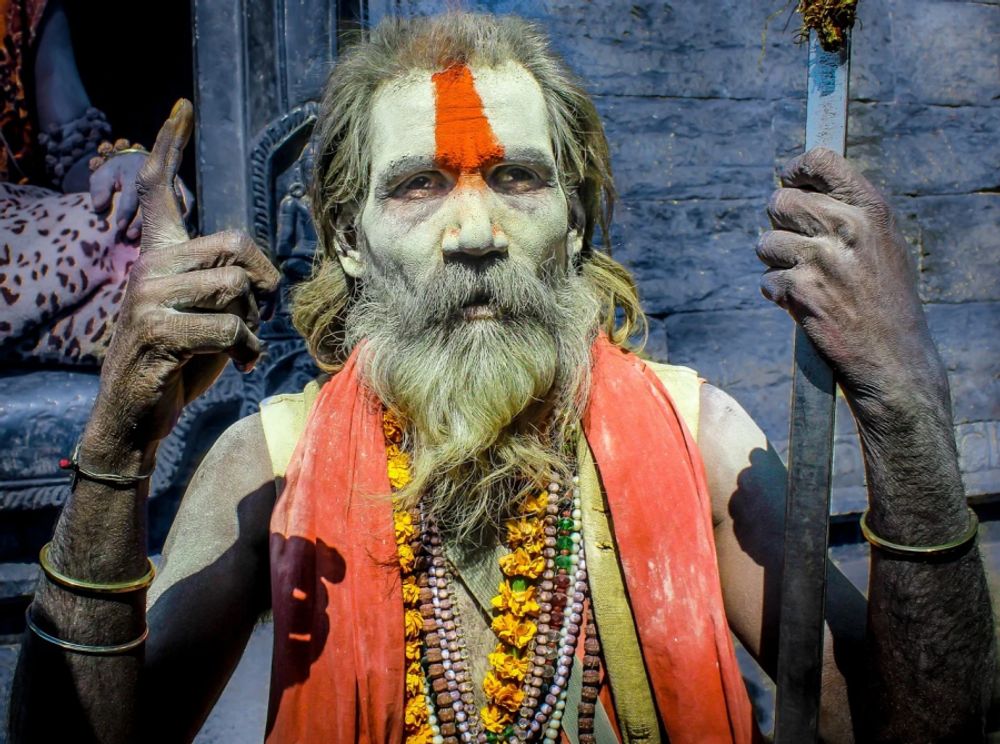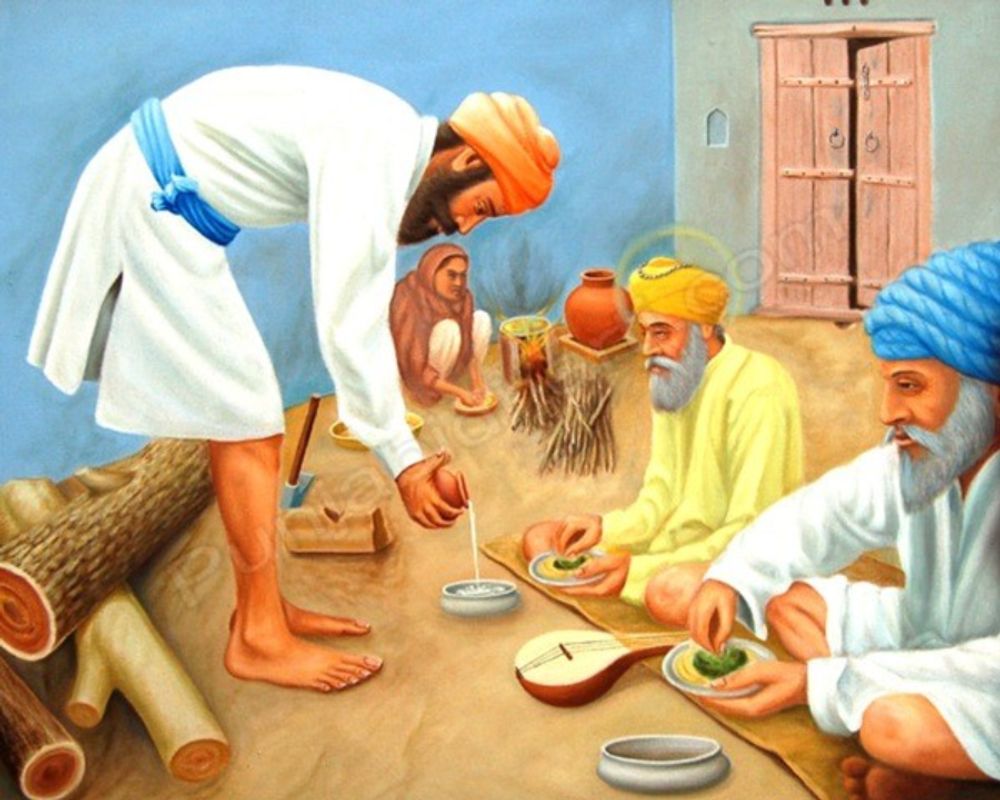

Since ancient times, India is a land of diversity that helps to enrich its culture in full bloom. It's quite obvious for a massively populated country like India. Our country has witnessed the wide range of assimilation of different caste of people. Consequently, this assimilation ensures the variety, vivacity and vibrant colour of Indian culture.
As we all know, culture, basically defines people's attitude towards life and society..the way they used to conduct with others,the way they used to react towards different social issues, the way they accept different changes while retaining the core.
Though India has a rich heritage of different cultures and customs,the soul of Indian culture is very deep and divine-Spirituality. If we turn the pages of the history of India, we will see,that the sages are an integral part of Indian mythology, Indian culture. These sages have taken the path of austerity for the sake of salvation and spirituality. Though it may seem quite ambiguous to the foreign tradition...to forsake every materialistic desires for the sake of salvation, it has its own significance in terms of religion fervour in India.

Indian culture is deeply rooted in the holy armour of spirituality. Spirituality is a journey, a search to identify the “self “. The inquiry of the true self starts with queries, “Who am I?”,”Where I am coming from?”,”Where I am going after death?” Spirituality offers the thirsty and pure mind to understand the real purpose of life through serving humanity. Spiritual practices,like yoga and meditation activate the higher consciousness of mind and impart the purity and power of the soul. It also energises the power of intuition and refines the value of moral ethics. Spiritual knowledge helps a man to gain insight to rise beyond the worldly agonies . Spiritual wisdom motivates men to adopt a correct way of living and right way of thinking.
Right from the Vedic times,Upanishada, The Vedas,Purans etc. are contributing to intensify the mystic reality of Indian spiritualism. The lessons, we get from these spiritual scriptures are still relevant and empowers human wisdom. For example, the teaching of Upanishada i.e “Vasudhaiva Kutumvakam “ encourages us to broaden our point of view to accept the whole world to be woven in one single thread of love and mutual respect.
Vedic age also acknowledges the position of women in terms of Spiritual enlightenment. We find some eminent women spiritual thinkers that include Gargi,Maitrayi,Apala etc.
The spiritual intelligence of Bhagavat Gita is undeniable. This book is a living embodiment of the complete philosophy of life. It asserts a life,based on faith and devotion through the complete surrender to the Almighty.

The principle of Buddhism constitutes the idea of developing the spiritual qualities of awareness, kindness and wisdom..The pioneer of Buddhism, Lord Goutam Buddha, left his royal legacy to be the refuge of mankind who were in trouble and distress. According to Buddhism, the divine seeds of enlightenment are continually being showered upon us and it is our task to make the ground ready so that the seeds may bloom into their fullness.

The spirituality of Islam comprises beliefs, rituals, daily-living behaviours and knowledge. This spirituality shows the presence of a relationship with Allah that moulds the individual's self worth, sense of meaning and connectedness with others and nature. According to Islam, everything is spiritual because all actions must be in accordance with God's pleasure.
In Jainism, spirituality is essentially an individual endeavour. Every basic reality of the universe is integral. The spiritual idea of Jainism relies on the function of the soul to help one another.

This surge of spirituality culminated in the chapter of Indian history through the Bhakti movement and Sufi movement
Bhakti movement brought a renaissance in the cultural history of medeival India. The term “bhakti" is defined as “devotion “ or passionate love for the Divine. The movement started in the nineth century A.D.by Shankaracharya which continued upto sixteenth century.
There were various causes that led to the rise of the Bhakti movement. One of the prominent causes was the evils of Hinduism. During the medieval times, some evils had crept into the Hindu religion. Evils such as the caste system and untouchability were wide-spread. As a consequence, the ideas of brotherhood and equality, preached by Islamic missionaries attracted wide range of people in India. Another reasons of this movement included the influence of Vaishnavism, the influence of Sufi sects and the emergence of great reformers.
The doctrines of the Bhakti movement are-
A. Unity of God or one God though known by different names.
B. Intense love and devotion, the only way to salvation.
C. Repetition of the True Name.
D. Self-Surrender.
E. Condemnation of rituals, ceremonies and blind faith.
F. Rejection of idol worship by many saints.
G. Open-mindedness about deciding religious matters.
H. No distinction of different castes,higher or lower.
I. Need of a Guru for guidance.
J. Preachings through local or regional languages and travelling from place to place for spreading the religious message.

The important leaders preaching the propaganda of Bhakti movement are Ramanuja,Kabir,Guru Nanak,Chaitanya, Meerabai,Vallabhacharya, Tulsi Das,Dadu Dayal and many more. Ramanuja was a Vaishnava Saint from South India. He followed Lord Rama and gave the knowledge of Vishistadvaita. Kabir was not only concerned about the religious reforms but also aimed for a changed society. He didn't believe in image worship and the religious difference between Hindus and Muslims. He expressed his ideas in Dohas. Surdas was born blind and became renowned for his beautiful songs glorifying Krishna. Chaitanya was the founder of Bengali Vaishnavism. He was considered a dual avatar of Radha and Krishna. His influence still extends through various groups including the Hare Krishna movement. Guru Nanak was the Nirguna Bhakti Saint and social reform was one of his prime goals. He is the founder of Sikh religion. Meerabai was a Rajasthani princess who considered Krishna her real husband and was consequently persecuted by her own family. Her songs and poems are still recited by Krishna devotees. Tulsi Das wrote the popular version of the Ramayana known as Ramcharitamanas. Vallabhacharya was a follower of Lord Krishna and gave the knowledge of Pushti Marg. Dadu Dayal was a Nirguna Bhakti Saint and founded Dadu Panth.
The Sufi movement was a socio-religious movement of fourteenth to sixteenth century. The Sufi mysticism is associated with the liberal interpretation of Quran called Tarikat. This movement outwardly rejected the religion and emphasized the love and devotion to God and compassion towards all human beings. The core concept of Sufi movement was Universal Brotherhood.
The word “Sufi" derives its name from another Arabic word “Suf" which means wool. The Muslim saints who wore garments of coarse wool began to be called Sufi Saints. The first epoch of Sufism is said to have begun in the seventh century A.D.

The main features of Sufism-
A. Sufism was inspired by Islam excluding the orthodox outlook of Muslims that depend upon the blind observance of religious rituals.
B. Sufi saints seek inner purity. According to them, love and devotion are the only means of reaching God.
C. They attach great importance to their “Murshid" or “Pir" (Guru) along with Prophet Muhammad.
D. Devotion is more important than fast or prayer.
E. Sufism emphasises upon leading a simple life.
F. Sufism does not believe in caste system.
G. Sufi saints preached in Arabic, Persian, Urdu etc.
H. The Sufis were divided into twelve orders, each under a mystic Sufi saints.
Khwaja Muinuddin Chisti was one of the greatest sufi saints of India. By leading a very simple ascetic way of life and spreading the message of love and equality he had tried to wipe out I’ll feelings from the minds of Hindus and Muslims.
Farid-ud-din Ganj-i-Shakar was popularly known as Baba Farid. His outlook was so broad and humane that some of his verses and later found quoted in the Adi-Granth of the Sikhs. He used to say “Every darvesh who makes friends with nobles will end badly.”
Nizam-ud-din-Auliya was the disciple of Baba Farid. He said that those who love God for the sake of human beings and those who love human beings for the sake of God are favourite to God. This is the best way to love and adore God.
These movements took us on a journey from the state of unawareness,inequality, dependency and ethical path,eager to help others and seek salvation in everyone's happiness and growth. They worked for spiritual progress and served mankind of the world.
However, in India, spirituality is a creative quest by one's own self. It is an important attribute of sound body and mind. The entire spectrum of Indian culture has been constantly influenced and shaped by the inspiring force of a multi sided spirituality.








